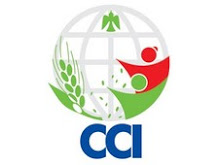Cardijn Community International (CCI) is holding an International Conference in India in December 2015 to commemorate the conclusion of the Second Vatican Council.
It may be recalled that the project 'Vatican 2+50: A Cardijn Perspective' was launched at a conference in Manila in October 2012 to re-examine the spirit and decisions of Vatican II in the light of Cardinal Cardijn's perspectives.
Social Teachings of the Church and Lay Participation were chosen as the two specific areas for study.
Where and When
The International Conference will be held in Joe Beach Conference Centre, Mamallapuram, Chengalpattu district, India - near Chennai city from Thursday 5th to Sunday 8th December 2015.
Joe Beach is a beautiful sea-side resort offering all the comforts besides a calm and serene atmosphere. Weather in December will range from 18 to 20 degrees C.
 Cardinal Cleemis Catholicos, President of the Catholic Bishops' Conference of India (CBCI) will be inaugurating the conference on 5th December 2015 in the evening.
Cardinal Cleemis Catholicos, President of the Catholic Bishops' Conference of India (CBCI) will be inaugurating the conference on 5th December 2015 in the evening.
Cardijn Community India which is co-hosting the conference is in communication with the Papal Nuncio in India to be the Chief Guest at the Valedictory on the 8th December 2015.
Who can participate
CCI members, members of Cardijn movements,
student organisations and lay movements, religious and individuals interested
in the topic
Registration
Registration fee (towards accommodation for 4 nights and conference registration): US $ 120- only.
Cardijn Community India is meeting all other expenses including food.
You can register at: vatican2plus50@gmail.com





















